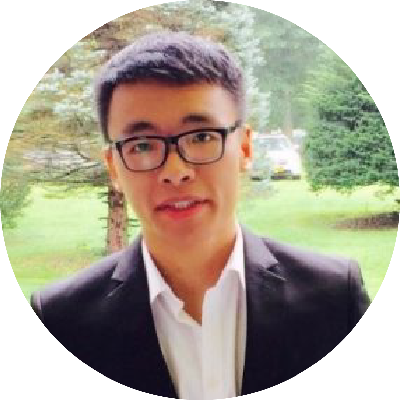
Chenxu Guo
I conducted my research in Stephen Gould’s lab, where we focus on advancing science at the intersection of organelle biogenesis and human diseases, specifically in the areas of biogenesis and engineering of small extracellular vesicles, including exosomes, viruses and virus-like particles. My research spans a broad spectrum. I have made original scientific discoveries in the areas of exosome biogenesis and mammalian cell transgenesis, advancing our understanding of a fundamental cell biological process and using these advances as a road map for the design and manufacture of exosome-based vaccines and therapeutics. Moreover, I have made significant contributions to the fight against SARS- CoV-2 by elucidating the molecular mechanisms underlying the evolution of its spike mutations. These studies revealed that the furin cleavage site insertion disrupted spike sorting and functions, while the D614G mutation acts as an intragenic suppressor of these deleterious effects. Investigation of spike trafficking also provided me with information to synergize my projects and create exosome-displayed SARS-CoV-2 Spike and influenza hemagglutinin vaccines that allow for rapid production at high efficiency and induce strong immune responses at low antigen dose.
Questions & Answers
Why did you choose Johns Hopkins for your work?
I chose Johns Hopkins for my work because of its rich history and unparalleled reputation in the field of biomedical research. Johns Hopkins has played a significant role in shaping the landscape of medical education and research and has served as a model for numerous other medical schools. Its commitment to excellence and innovation, coupled with its world-renowned faculty and cutting-edge resources, provided an ideal environment for me to pursue a Ph.D. degree via groundbreaking research. In addition, the collaborative atmosphere, along with the Johns Hopkins-AstraZeneca Scholars Program, fosters a dynamic intellectual community, enabling me to learn from and contribute to the ongoing advancement of biomedical science.
What does receiving this award mean to you personally and professionally? Do you have any connection with the particular award you received?
Receiving the Alicia Showalter Reynolds Research Award is an incredible honor to me, both personally and professionally. It validates my efforts and signifies that my research is contributing to the scientific community. Although I don’t have a direct connection to Alicia Showalter Reynolds, I deeply appreciate the significance of this award named in her memory. Alicia was a dedicated and talented Ph.D. candidate at Hopkins when her life was tragically cut short. This award serves as a reminder of her passion for research and her contributions to the Hopkins community. Being a recipient of this award motivates me to continue striving for excellence in my work and to honor her memory through my own achievements in biomedical research.
What contributed to your project’s success?
The success of my project can be attributed to several key factors. First and foremost, I am deeply grateful for the exceptional mentorship and guidance from my adviser, Dr. Stephen Gould. His unwavering support and encouragement were instrumental in shaping my research journey. I also want to acknowledge the failures and challenges I encountered along the way, as they provided invaluable learning experiences and ultimately contributed to my discoveries. My commitment to the scientific community has been a driving force behind my work, especially during the early days of the pandemic. Instead of staying home, I chose to step up and have been actively engaged in the fight against COVID-19, leveraging our expertise in protein trafficking and the collaborative team efforts to develop COVID-19 vaccines and serology tests, and to elucidate the genetic and molecular mechanisms underlying the early evolution of the SARS-CoV-2 spike.
What thoughts do you have about Young Investigators’ Day itself, as a celebration of the roles student and fellows play in research at Johns Hopkins?
Young Investigators’ Day is a wonderful opportunity to celebrate the dedication and hard work of students and fellows at Johns Hopkins. It highlights the crucial roles they play in advancing research and facilitating a culture of innovation. As a recipient of the Alicia Showalter Reynolds Research Award, I am incredibly proud to be part of this vibrant scientific community and feel a deep sense of gratitude and responsibility. I am inspired to continue making meaningful contributions to its ongoing success in the field and to be one of the next generation of researchers shaping the future of biomedical science.
What has been your best/most memorable experience while at Johns Hopkins?
One of my most memorable experiences at Johns Hopkins was the opportunity to collaborate with leading biopharmaceutical companies, like AstraZeneca, AbbVie and Capricor Therapeutics. These collaborations not only provided me with valuable industry insights, they also reinforced my passion for translational research. I am also deeply grateful for the friendships and connections I made during my time at Hopkins, which have enriched my life and will continue to inspire me in my future endeavors.
What are your plans over the next year or so?
I am still weighing my options between pursuing a senior scientist position at a leading pharmaceutical company or continuing my research as a postdoctoral fellow at a university.
Tell me something interesting about yourself that makes you unique. Do you have any special hobbies, interests or life experiences?
In addition to my diverse educational background in economics, chemistry and biology, I have a wide range of interests that extend way beyond sciences. I am passionate about playing basketball, which has not only kept me physically fit but also helped me develop teamwork and leadership skills that translate well into the research environment. My love for driving and exploring new places has led me to travel extensively, exposing me to different cultures and broadening my perspective on the world. This sense of exploration and curiosity also fuels my passion for scientific discovery.